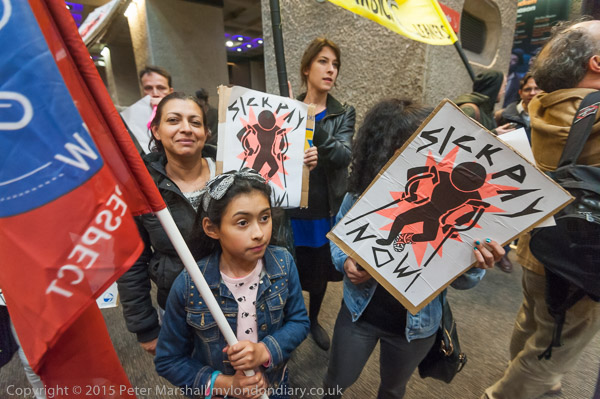
The purpose of protests is to bring whatever cause they support to the attention of others, particularly those who bear some responsibility for them or who could act in a different way to address the problem that led to the protest.
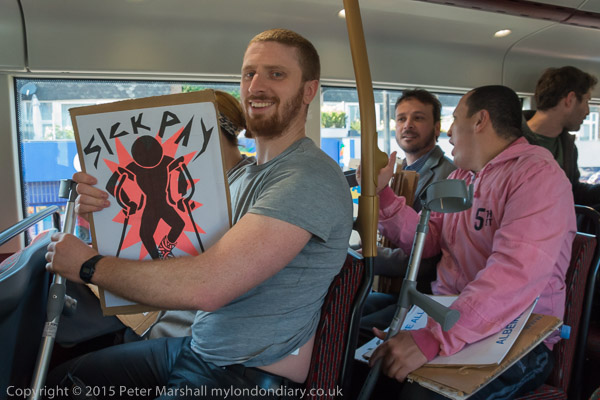
The current Police, Crime, Sentencing and Courts Bill seeks to make protests entirely ineffectual – allowing police to insist they will only take place where they will not be noticed and banning them from making any noise or causing any inconvenience. Given the Tory majority and the lack of concern for civil rights shown by most MPs it seems likely to come into force, but I think unlikely to actually be enforceable by police, though it will lead to clashes and arguments which will greatly reduce public trust in the force.
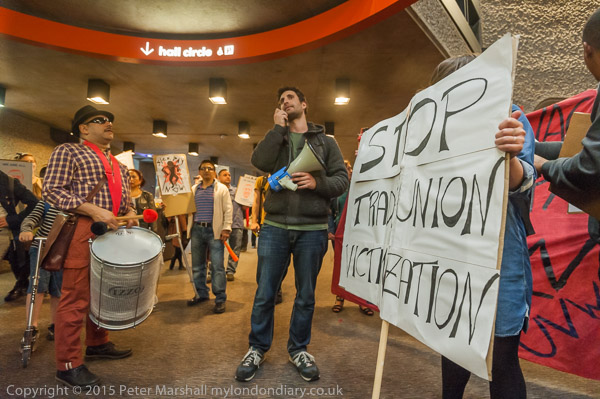
On May 16th 2015 I was privileged to be able to cover a protest by the grass roots trade union United Voices of the World from their meeting before the protest to the end of the event. Most of the members are low-paid migrant workers and most of the business was conducted in Spanish, with some key items translated into English for the benefit of me and the few other non-Spanish speakers.
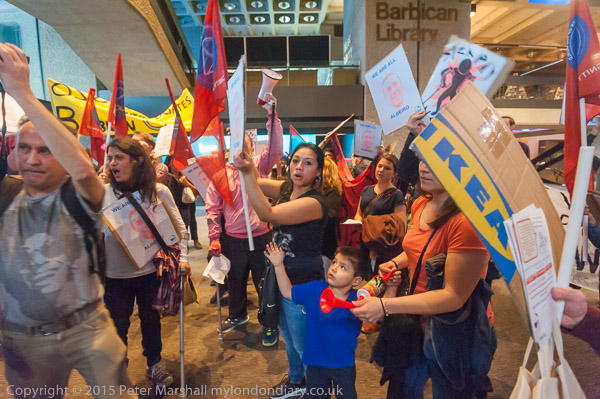
From the meeting in Bethnal Green we travelled by bus to Liverpool St and then walked quietly as a group to meet up with others close to the Barbican. Many were carrying drums, flags and placards as they rushed past the two security guards on the door of the centre who held up a couple of them but couldn’t stop the rest, and the group made its way to the heart of the Barbican Centre, where people were already gathering for evening performances.
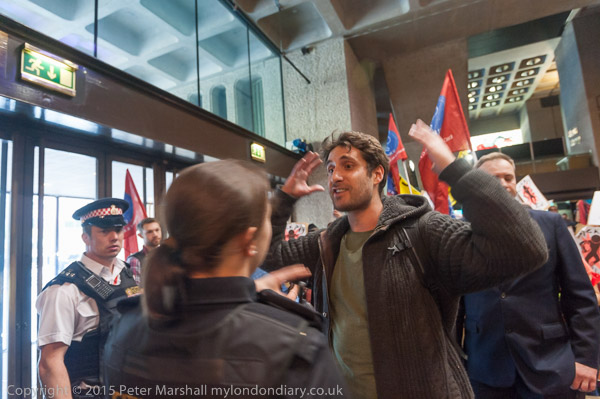
Rather than employ cleaners directly, the Barbican Centre uses a contractor, Mitie. The Barbican is a relatively good employer and offers its employees decent terms and conditions, but MITIE cuts costs to a minimum and has threatened the cleaners with sacking if they protest for a living wage and proper sick pay and other conditions, and the union says they employ bullying managers who disrespect staff and fail to provide proper working conditions. One disabled worker had recently been assaulted by a manager and accused of ‘terrorism’ after posting a short video clip showing his working conditions.
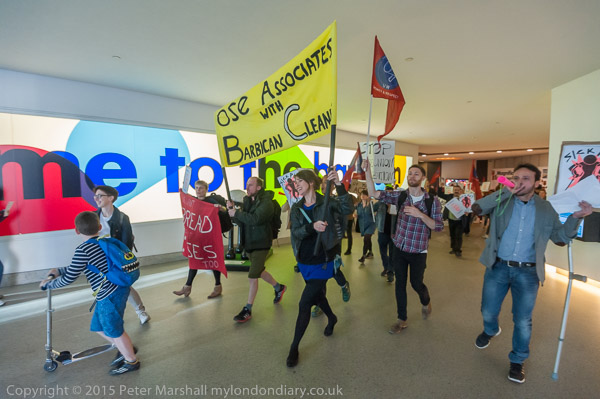
The protesters held a short noisy protest, using a megaphone to let the public know why they were protesting and calling for an end to the victimisation of trade unionists and for negotiations to get satisfactory conditions of work and service and a living wage. They called on the Barbican to meet its obligations to people who work there by insisting that any contracts they make include safeguards to protect the workers – rather than denying any responsibility for those who keep the centre clean.
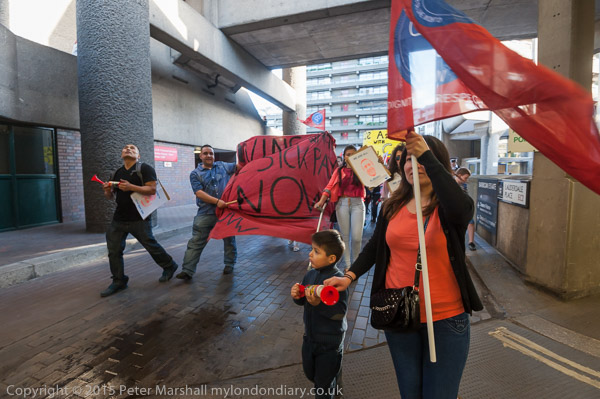
After a few minutes, police arrived and argued with the protest organiser Petros Elia who agreed to move, and the protesters then went on a walk around the centre to make sure all those in it where aware the protest was taking place and why the union was protesting. Finally they agreed with police to leave the centre, going out the way they had come in and rejoining members who worked at the Barbican who had stayed outside to protest. The protesters then walked around some of the public streets around the Barbican before returning to protest in front of the main entrance, where I left them still protesting noisily.
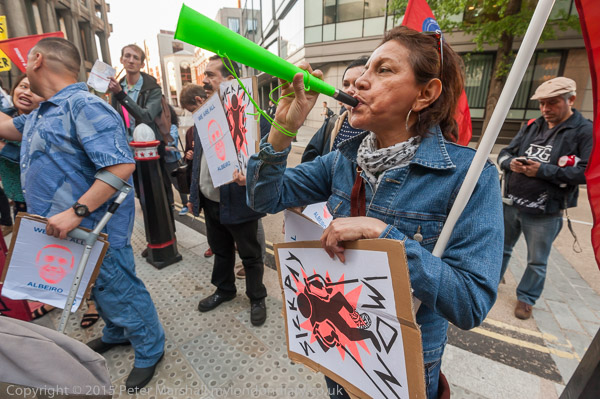
Under the Police, Crime, Sentencing and Courts Bill all of this would have been illegal, and perhaps they might have been allowed just a small and quiet display some distance across the road from the centre, which few would have noticed.
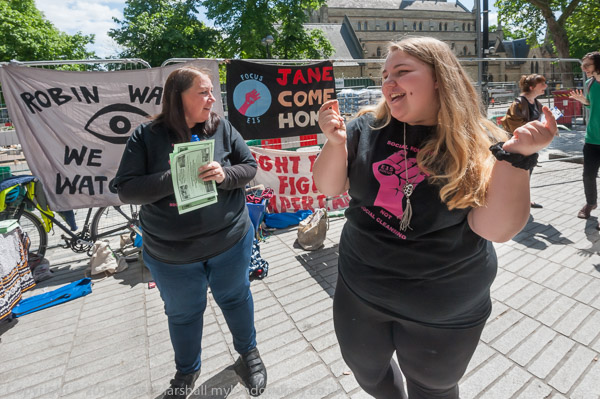
I’d earlier photographed three other protests, two of which I’m sure would have fallen foul of the proposed new law. Newham Council had been trying to get rid of Focus E15’s weekly street stall in Stratford Broadway since it started almost two years earlier, and today’s protest celebrated the dropping of a contrived case against Jasmin Stone, one of the protest leaders. Later in the year the police and council came and ‘arrested’ the Focus E15 table – but had to release it a few days later.
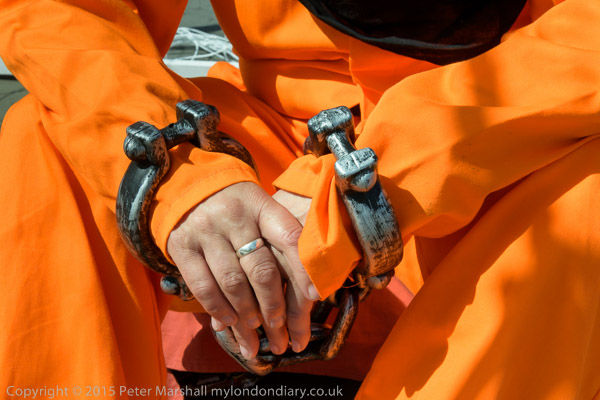
While it might have been possible for the Free Shaker Aamer campaign to get permission for their protest on the North Terrace of Trafalgar Square, I think their activities and use of the megaphone would have been severely curtailed.
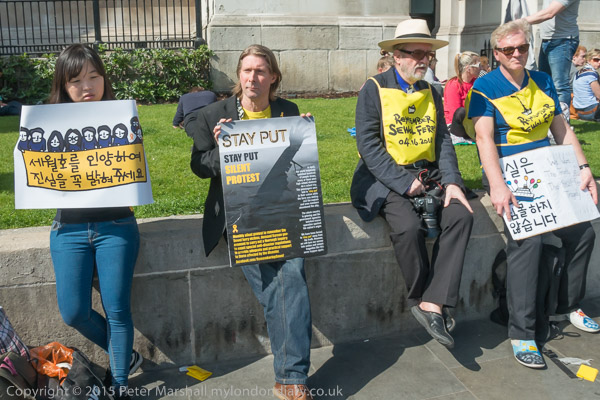
The small, silent ‘Stay Put’ vigil – seven people holding posters in silence by the wall in a corner of the square – is perhaps a model of what Priti Patel considers an acceptable level of protest. Though more probably she would like to go full North Korea.
Cleaners invade Barbican Centre
Silent protest over Sewol ferry disaster
Caged vigil for Shaker Aamer
Victory Rally For Jasmin Stone